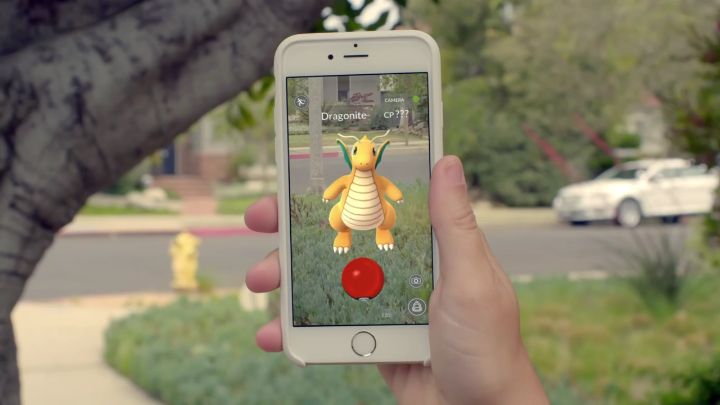Unless you’ve been living in a secluded location with no Internet access for the last couple of days, you can’t have helped but notice that a little mobile game called Pokémon Go has taken the world by storm, with millions of people having downloaded Nintendo’s free to play game since its release on July 6.
People have clearly taken to Pokémon Go (which has only been released in the United States, Australia and New Zealand so far) and player’s obsession with the game has been such that game developer Niantic’s servers couldn’t handle the demand, meaning some people were unable to play the game and a few even had their progress erased, amongst other issues.
Pokémon Go is an AR (Augmented Reality) game which involves hunting cute little creatures known as Pokémon, by throwing balls (known as Póke Balls in the game) at them. Captured Pokémon can later be made to evolve into other variants, and can fight adversaries’ Pokémon at locations known as gyms.
Perhaps the biggest draw of the game are its “augmented reality” features, as the game is played both on a mobile screen and in the real world using GPS technology. Using GPS, players can locate Pokémon in their city, with cues like their mobile phone vibrating alerting them if Pokémon are nearby. And certain types of Pokémon favour specific locations such as water sources like rivers and lakes, for instance.
This interaction with the real world, exploring real-life locations on their own city in a search for the cute and quirky Pokémon creatures, while perhaps socializing with other players outdoors is a great experience overall, and together with the popularity of the Pokémon franchise is likely the reason behind the game’s tremendous success.
And it is clear that Nintendo has struck gold with the Pokémon Go mobile game, after the company had previously shunned smartphone gaming in the past. But its partnership with mobile video game developer DeNA signalled its intention to enter this market, letting its top-selling franchises like Pokémon and Mario be the basis for future smartphone games. And if Pokémon Go’s success is any indication, things could be quite rosy for Nintendo’s video game business from this point onward.
Actually, the company’s shares rose almost ten percent in the Tokyo stock exchange since Pokémon Go’s debut last week, proving that not only gamers were delighted with the latest Pokémon game but investors were too… Also, the number of Pokémon-related searches on Google have skyrocketed, and the wildly popular game could also be getting close to overtaking Twitter in terms of daily active users, according to gaming website GameSpot.
While the game is free to play, Pokémon Go’s business model is based on microtransactions, which even though players have shown distaste for them in mainstream games like Ubisoft’s Assassin’s Creed Unity in the past, have proved enormously profitable for mobile game companies such as Supercell in games like Clash of Clans. And shockingly enough, Pokémon Go could already be making Nintendo more than $1 million US dollars per day in microtransactions according to Forbes.
So this could be a major win for Nintendo, and if the game manages to keep players interested over the long haul, and if players love of all thing Pokémon continues, then there is no doubt that the Japanese company could end up becoming a major player in the smartphone game market in the future.
Pokémon GO YouTube video
COPYRIGHT: Nintendo / Pokémon / Niantic.


